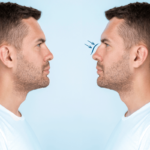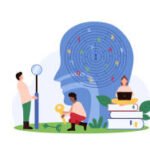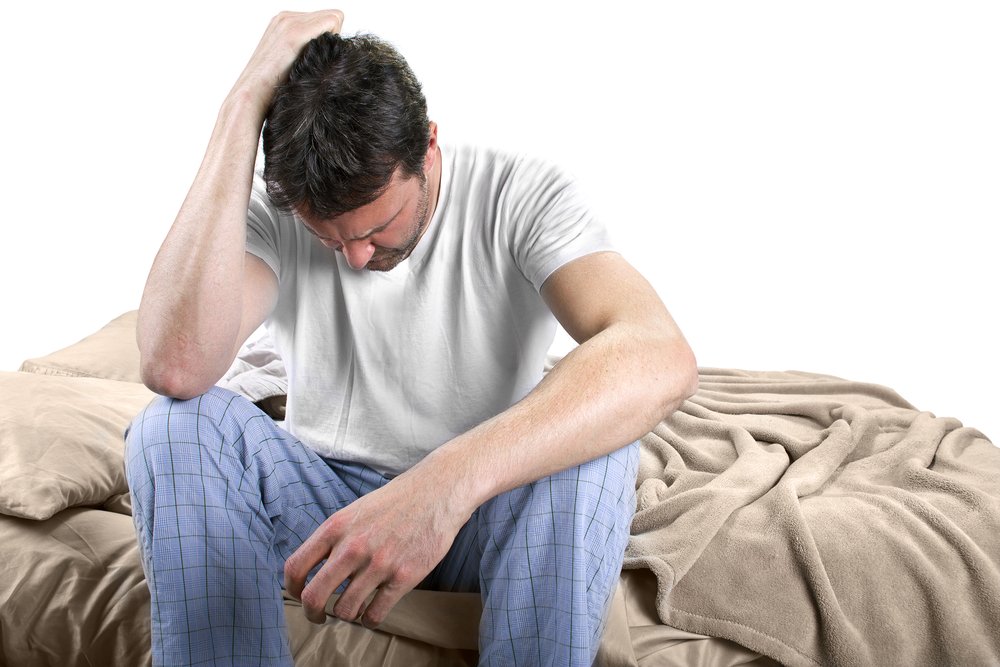Excessive daytime sleepiness is a common concern many experiences, often attributed to busy schedules, lack of sleep, or lifestyle habits. However, when tiredness becomes persistent and disruptive, significantly affecting daily life, it may signal a condition known as hypersomnia. Hypersomnia is more than occasional fatigue; it is characterized by a chronic, overwhelming urge to sleep during the day, often despite adequate rest at night. Furthermore, having an in-depth look at hypersomnia, understanding ways to cope with or manage it, and understanding the potential concerns—are all important to combat hypersomnia for a better, restful, and focused life.
In addition to this, it is imperative to understand that this condition can hinder focus, memory, mood, and productivity, impacting overall well-being. Unlike fatigue from a restless night, hypersomnia may arise from various underlying health issues such as sleep disorders, neurological conditions, mental health challenges, or even specific medications. Understanding the distinction between occasional tiredness and hypersomnia is crucial, as untreated hypersomnia can exacerbate both mental and physical health complications. This overview delves into the causes, symptoms, and when to seek professional advice, helping to clarify when excessive sleepiness crosses the line into hypersomnia. Keep scrolling to dive deep into the topic!
Exploring Hypersomnia—Is It Tiredness, Excessive Sleepiness, or Hypersomnia?
Hypersomnia is a condition where individuals experience extreme drowsiness throughout the day, often feeling the urge to sleep even after a full night’s rest or adequate sleep. This persistent sleepiness may stem from neurological issues or medical conditions like sleep apnea, though sometimes the root cause remains unclear or unidentified.
Also referred to as excessive daytime sleepiness or hypersomnolence, hypersomnia impacts one’s ability to function effectively during waking hours, often leading to challenges with focus, alertness, and energy. Moreover, individuals with hypersomnia may find it difficult to stay awake during activities, affecting productivity, mood, and quality of life. Also, in some cases, due to lack of concentration and sudden or abrupt sleep attacks, one may face serious repercussions like road accidents or other deadly incidents.
It is crucial to recognize that when daytime sleepiness becomes a concern, so major that it turns into hypersomnia, needing immediate attention and appropriate intervention. Identifying this excessive sleepiness as hypersomnia is the first step toward finding effective solutions and regaining control over daily life.
Key Characteristics of Hypersomnia—What to Watch For
The characteristics of hypersomnia can vary significantly among individuals, influenced by factors such as age, lifestyle, and any underlying health conditions. According to the International Classification of Sleep Disorders, hypersomnia can be defined as the inability to stay alert or awake during major waking hours or working hours. In other words, it can be deemed as sudden abrupt episodes of drowsiness or sleep.
In more severe cases, someone with hypersomnia may sleep soundly at night for 12 hours or more yet still experience a strong need for daytime naps. Despite extended sleep, these naps may offer little relief, leaving the person feeling persistently tired and mentally foggy most of the hours during the day. Often, people with hypersomnia may have fragmented or disrupted sleep cycles without being fully aware of it.
Additionally, some other signs of hypersomnia can include difficulty concentrating, impaired memory, and decreased motivation, all of which can impact daily activities and quality of life. Understanding these characteristics is essential for identifying hypersomnia and determining when it may be time to seek professional advice.
Excessive Sleepiness—Know When It Turns into Hypersomnia
Excessive daytime sleepiness (EDS) affects many people, often causing noticeable declines in productivity, focus, and overall quality of life. While occasional daytime tiredness can result from a lack of sleep, stress, or poor sleep habits, persistent drowsiness or sudden sleep attacks during the day may signal a deeper issue.
Furthermore, one such condition is hypersomnia, a disorder marked by excessive sleepiness despite adequate or prolonged night sleep. Distinguishing hypersomnia from general tiredness is essential, as this condition often requires targeted interventions to manage effectively. The following are some key factors to explore when EDS crosses into hypersomnia, covering its causes, types, symptoms, diagnosis, and available treatment options.
-
Understanding What Hypersomnia is
Hypersomnia is defined by a chronic and overwhelming urge to sleep during the day, even when an individual has had a sufficient or even excessive amount of nighttime rest. Unlike occasional fatigue, hypersomnia is consistent and can significantly impact a person’s daily functioning over some time.
Furthermore, the two main types are primary hypersomnia (such as idiopathic hypersomnia and narcolepsy) and secondary hypersomnia, which often stems from other health conditions. Individuals with hypersomnia often report feeling mentally foggy and struggling to maintain alertness or stay awake for a longer period. Also, with drowsiness affecting concentration and memory, it becomes even harder to stay productive or focused.
Explore https://guest-post.org/ for latest blogs.
-
Hypersomnia Causes
Hypersomnia can arise from several underlying factors. Understanding the potential causes can help in both diagnosing and treating the condition.
The first could be neurological disorders. Conditions like narcolepsy or idiopathic hypersomnia directly impact brain mechanisms involved in sleep-wake regulation, often causing hypersomnia.
Moreover, sleep disorders like sleep apnea can lead to fragmented or low-quality sleep, resulting in excessive daytime sleepiness. Sleep apnea, for example, repeatedly disrupts sleep due to breathing interruptions, leaving the person feeling unrefreshed.
Also, hypersomnia can be a secondary symptom of medical conditions like Parkinson’s disease, multiple sclerosis, or hypothyroidism. These conditions can impact overall energy levels and disrupt normal sleep patterns. In addition to this, depression, anxiety, and other psychiatric conditions may contribute to hypersomnia. Depression, in particular, is often linked to changes in sleep cycles, leading to either insomnia or excessive sleep.
Lastly, certain medications (such as sedatives or antidepressants) & substances (like alcohol or recreational drugs) can interfere with sleep quality, causing persistent drowsiness during the day. Chronic stress, irregular sleep schedules, and other lifestyle habits may not directly cause hypersomnia but can exacerbate EDS, making it difficult to manage symptoms effectively.
-
Hypersomnia Signs and Symptoms
Primary symptom of hypersomnia is persistent daytime sleepiness. However, several other indicators help distinguish it from routine fatigue such as:
Individuals often feel an uncontrollable need to nap during the day, even in situations where sleep is inappropriate. So, they experience difficulty staying awake.
Then prolonged nighttime sleep does not make one feel refreshed or rejuvenated. Many individuals with hypersomnia may sleep for 10–12 hours at night but still feel exhausted the following day.
Furthermore, short naps taken during the day may offer little to no relief, leaving the individual just as tired as before. Also, hypersomnia often leads to “brain fog,” where individuals struggle to concentrate, stay alert, or remember tasks, resulting in poor productivity & reduced focus.
Finally, chronic sleepiness can impact emotional well-being, often resulting in irritability, anxiety, or depression.
-
Hypersomnia Diagnosis
Proper diagnosis of hypersomnia is essential for effective treatment. Typically, healthcare providers will evaluate a patient’s medical history, sleep patterns, and daytime symptoms. Common diagnostic tools include:
Polysomnography where overnight test that records brain activity, eye movements, heart rate, and breathing patterns to detect sleep disorders that might be contributing to hypersomnia.
Multiple sleep latency tests are conducted during the day following a sleep study. This test measures the time it takes for a person to fall asleep during a series of naps, helping to assess the degree of daytime sleepiness.
Epworth sleepiness scale where a self-assessment questionnaire helps gauge level of daytime sleepiness based on various scenarios, giving clinicians an initial insight into the severity of symptoms.
-
Hypersomnia Treatment and Management Strategies
Managing hypersomnia often requires a multifaceted approach tailored to individual’s underlying causes and symptoms. Some primary treatment options are discussed as follows:
- Lifestyle Adjustments: Regular sleep schedules, limiting caffeine and alcohol intake, and engaging in moderate exercise can support better sleep quality.
- Medications: For primary hypersomnia, medications like stimulants or wakefulness-promoting agents may help manage daytime drowsiness. In cases where a condition like narcolepsy is present, specific medications like modafinil or amphetamines may be prescribed.
- Therapies for Sleep Disorders: If hypersomnia is secondary to conditions like sleep apnea, treatment may involve CPAP (continuous positive airway pressure) therapy to improve nighttime breathing and overall sleep quality.
Lastly, Cognitive Behavioral Therapy (CBT) can be effective in managing hypersomnia related to depression or anxiety by helping individuals develop healthier sleep and mental habits.
Read Also: Understanding the Symptoms of Hypersomnia
To Sum Up
Hypersomnia goes beyond simple sleep loss, deeply impacting daily life and well-being. It can disturb mental stability and peace. By understanding hypersomnia’s causes, symptoms, and effects, people can recognize when excessive daytime sleepiness suggests a deeper issue. Early diagnosis is essential, as untreated hypersomnia can harm mental health, cognitive function, and social life.
A tailored treatment plan, including lifestyle changes, medical care, and supportive therapies, helps people manage hypersomnia, boost alertness, and improve quality of life. Seeking medical advice for severe cases is crucial, especially if linked to conditions like sleep apnea. Exploring treatment options for sleep apnea is first step toward better nighttime sleep and managing hypersomnia symptoms. For cases without underlying conditions, consulting a specialist is recommended.

















































